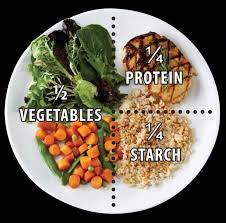Nourish to Flourish: Your Guide to Meal Planning for Optimal Reproductive Health
Planning your meals with a focus on reproductive health isn’t just about eating well; it’s about fueling your body with the right nutrients that can support fertility and enhance your overall well-being. Research shows that certain foods and nutrients play a significant role in improving reproductive health and boosting fertility. If you're ready to take a proactive step toward your fertility goals, here’s how to plan your meals for optimal reproductive health.
1. Understand the Nutrients Essential for Reproductive Health
The foundation of any fertility diet plan should be understanding which nutrients support reproductive health. Incorporating a wide range of vitamins and minerals like folate, zinc, and antioxidants is crucial. These nutrients help regulate hormone production, support egg and sperm health, and reduce inflammation. To optimize your nutrition for conception:
Folate: Found in leafy greens, beans, and avocados, folate supports DNA synthesis and is critical for preconception nutrition.
Zinc: This mineral is essential for both male and female fertility. Foods like seeds, nuts, and whole grains can help you reach optimal levels.
Antioxidants: Berries, nuts, and dark chocolate are packed with antioxidants that protect your reproductive cells from oxidative stress.
Incorporating these fertility-boosting foods ensures your body is receiving the necessary support for reproductive health.
2. Build a Balanced Plate
To enhance fertility, balance is key. Your meals should consist of a variety of macronutrients—proteins, fats, and carbohydrates—alongside micronutrients. The following guidelines can help you plan fertility-friendly meals that nourish your body:
Proteins: Opt for lean proteins such as fish, chicken, and legumes. Plant-based proteins like lentils and chickpeas are also excellent sources of fiber and help regulate insulin, a hormone linked to reproductive health.
Healthy Fats: Incorporating healthy fats like omega-3 fatty acids can improve egg quality and increase fertility. Fatty fish like salmon, flaxseeds, and walnuts are great additions to a fertility diet plan.
Whole Grains: Instead of refined carbs, choose whole grains like quinoa, brown rice, and oats. These foods stabilize blood sugar levels and provide sustained energy, which is crucial for hormone regulation.
The goal is to create fertility-friendly meals that include a colorful mix of these essential nutrients. This way, you're preparing your body to be at its most fertile.
3. Include Fertility-Boosting Superfoods
Certain foods are specifically known to enhance fertility due to their nutrient profiles. Incorporating these into your daily diet can make a significant difference. Here are some of the best foods for conception:
Leafy Greens: Spinach, kale, and Swiss chard are rich in iron, calcium, and folate—all critical for reproductive health.
Berries: Blueberries, strawberries, and raspberries are loaded with antioxidants, which protect the reproductive system from damage and aging.
Avocados: Rich in healthy fats, avocados help regulate blood sugar and improve hormonal balance, making them a top food to enhance fertility.
Incorporating these fertility-boosting foods into your meal plan will provide your body with the essential nutrients it needs to support reproductive health.
4. Optimize Timing with a Fertility Diet Plan
Meal timing is often overlooked, but it’s an essential component when planning for optimal reproductive health. Balancing blood sugar levels throughout the day can improve hormonal health and, in turn, boost fertility. To optimize meal timing:
Start with a Protein-Rich Breakfast: Eating a nutrient-dense breakfast that includes protein, such as eggs, Greek yogurt, or chia seeds, helps regulate hormones throughout the day.
Eat Regularly: Avoid skipping meals, as it can lead to hormonal imbalances. Eating small, balanced meals every 3-4 hours helps maintain energy and blood sugar levels.
Hydrate: Staying hydrated is crucial for reproductive health. Water supports healthy cervical mucus production and keeps your cells functioning optimally.
Creating a meal schedule that aligns with your fertility diet plan will ensure your body stays in balance and supports optimal reproductive function.
5. Customize Your Plan Based on Your Body’s Needs
Every body is unique, and your meal plan should reflect that. If you're experiencing specific fertility challenges, certain nutrients may be more beneficial than others. For example:
PCOS (Polycystic Ovary Syndrome): If you have PCOS, focus on low-glycemic foods that won’t spike your insulin levels. High-fiber foods like beans, lentils, and vegetables are excellent choices.
Endometriosis: Women with endometriosis should focus on anti-inflammatory foods such as salmon, turmeric, and leafy greens.
Consulting with a fertility nutrition specialist can help you customize your fertility diet plan to address your specific needs, ensuring you're on the best path to improving your reproductive health.
Conclusion
Planning your meals with a focus on reproductive health is one of the most effective ways to naturally boost fertility. By incorporating a balance of fertility-boosting foods, healthy fats, proteins, and whole grains, along with timing your meals appropriately, you can support your body in preparing for conception. Remember that nutrition for conception is not just about individual ingredients; it’s about creating a holistic, nutrient-dense diet that supports your body’s unique reproductive needs.
By following these strategies, you can take a proactive approach to improving your reproductive health and increasing your chances of conception. Whether you're just starting on your fertility journey or looking to optimize your preconception nutrition, your meal plan plays a vital role in your overall fertility success.
I remain your nutrition coach,
Sekinat Odeyori.





.jpeg)
.jpeg)
.jpeg)




Comments
Post a Comment